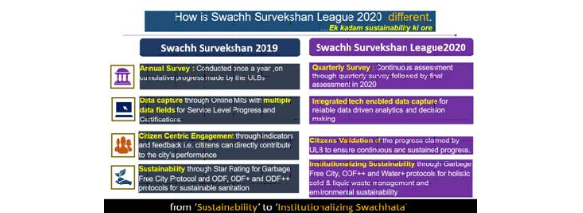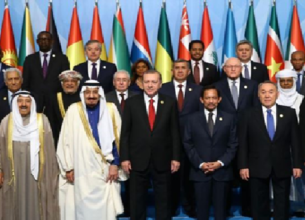Prelim Snippets 14-08-2019
PRAAPTI PORTAL
Context: The Central Electricity Authority (CEA) is planning to maintain the database of all outstanding dues by distribution companies (DISCOMS) to renewable energy generators. The DISCOMS have been asked to submit their contact details so that they can have access to PRAAPTI portal.
About PRAAPTI:
- PRAAPTI stands for Payment Ratification and Analysis in Power Procurement for bringing Transparency in Invoicing of Generators.
- It is launched by the Ministry of Power.
- It is a platform aimed at enhancing transparency and encouraging best practices in Power Purchase transactions.
- PRAAPTI receives periodic updates/information from onboard Generation Companies (GenCo) regarding their Power sale invoicing and payment receipts from various.
- This information is then analyzed at portal’s backend and the results are presented in form of industry standard parameters.
MINAMATA CONVENTION
Context: A recent study shows that mercury levels in fish in seas and oceans are on the increase as a result of pollution.
About Minamata Convention:
- The Convention is global treaty that aims to protect human health and the environment from anthropogenic emissions and releases of mercury and mercury compounds. It derives its name after Japanese city Minamata which had went through devastating incident of mercury poisoning. It aims to control anthropogenic releases of mercury throughout its lifecycle.
- The convention was agreed at 5th session of intergovernmental negotiating committee on Mercury in Geneva, Switzerland in January 2013 and was adopted in October 2013 at Diplomatic conference (Conference of Plenipotentiaries), Kumamoto, Japan.
Obligations on Parties of convention:
- Ban on new mercury mines, the phase – out of existing ones.
- Phase out and phase down of mercury use in a number of products and processes.
- Control measures on emissions to air and on releases to land and water,
- Regulation of the informal sector of artisanal and small-scale gold mining.
Significance of Convention:
- It is implemented in context of sustainable development agenda with objective to protect human health and environment from anthropogenic emissions and releases of mercury and mercury compounds.
- It addresses interim storage of mercury and its disposal once it becomes waste, sites contaminated by mercury as well as health issues.
- It protects most vulnerable from the harmful effects of mercury. It also protects the developmental space of developing countries. Therefore, protects interest of the poor and vulnerable groups.
- It further urges enterprises to move to mercury – free alternatives in products and non – mercury technologies in manufacturing process. This will drive R & D and promote innovation.
ORGANISATION OF ISLAMIC COOPERATION (OIC)
Context: Organisation of Islamic Cooperation (OIC) has termed India’s Decision to Revoke Article 370 as ‘Illegal’
About OIC:
- OIC is an international organization founded in 1969, consisting of 57 member states.
- It is the second largest inter-governmental organization after the United Nations.
- The organisation states that it is “the collective voice of the Muslim world” and works to “safeguard and protect the interests of the Muslim world in the spirit of promoting international peace and harmony “.
- The OIC has permanent delegations to the United Nations and the European Union.
- Its Permanent Secretariat is in Jeddah, Saudi Arabia.
JIO GIGAFIBER
Context: Reliance Industries has unveiled its wired broadband service Jio GigaFiber. This service will start commercially from 5 September at rates which are one-tenth compared to global rates.
Components:
- This will combine wired broadband, television content, landline calling and a host of smart solutions such as multi-player gaming and video conferencing.
- Under the Jio GigaFiber welcome offer, customers opting for one-year plan for Jio GigaFiber will even get an HD 4K LED television and a 4K set-top box free.
Target:
- The company has drawn up a plan to reach 20 million homes and 15 million business enterprises in 1,600 cities across India.
SAUDI ARAMCO
Context: Reliance Industries announced that it was selling a 20 % stake in its flagship oil and chemical business to Saudi Aramco for $15 billion. This will be the second-largest foreign investment in India.
About Saudi Aramco:
- Saudi Aramco is Saudi Arabia’s national oil company which is responsible for managing the nation’s petroleum wealth. Currently, the company is said to account for around 87 per cent of Saudi Arabia’s budget
- Heavily influenced by the Al Saud royal family, Saudi Aramco is controlled by the Supreme Council for Saudi Aramco (SCSA) led by crown prince Mohammed bin Salman, the nation’s de facto ruler.
- Saudi Aramco is the world’s most profitable company. With a net profit of $46.9 billion so far this year, Saudi Aramco has made more money than Apple and Alphabet (the parent company of Google) combined, this despite having witnessed a 12 per cent fall in half-year net profit.
- Since 2016, when Crown Prince Mohammed bin Salman took charge of the company, Saudi Aramco is on the path of investing in non-oil sectors such as technology, part of the country’s plan to become less dependent on petroleum.
OPERATION NUMBER PLATE
Context: Railway Protection Force (RPF) launched a Special Drive with a Code-Named Operation “Number Plate” across Indian Railways, a Drive against unattended/unclaimed vehicles in all Railway Premises.
- Objective: To identify and verify all vehicles parked in Railway premises, circulating area, parking’s and even in the ‘No Parking’ areas for longer duration.
- Bodies Involved: It has been launched by Railway Protection Force (RPF) of Indian Railways with active cooperation of the Local Police and Commercial Department of Railways.
- Need: The unidentified vehicles are considered as a serious threat to security and safety of passengers and other stake holders of railways.
SWACHH SURVEKSHAN 2020

Context:
- Union Government has launched the Swachh Survekshan 2020 (SS 2020), the fifth edition of the annual cleanliness survey conducted by the Ministry of Housing and Urban Affairs (MoHUA)
Focus areas of Swachh Survekshan 2020:
- Collect segregated waste and maintain till processing site
- Utilising capacity of wet waste processing facilities
- Treat and reuse waste water
- Curtail solid waste-based air pollution
- Uplift social condition of informal waste pickers
- Promote procurement through GeM
- Assess Ganga Towns separately to accelerate action
- Engage technology driven monitoring







